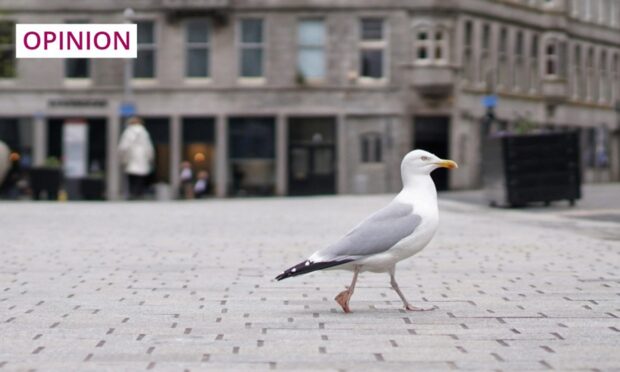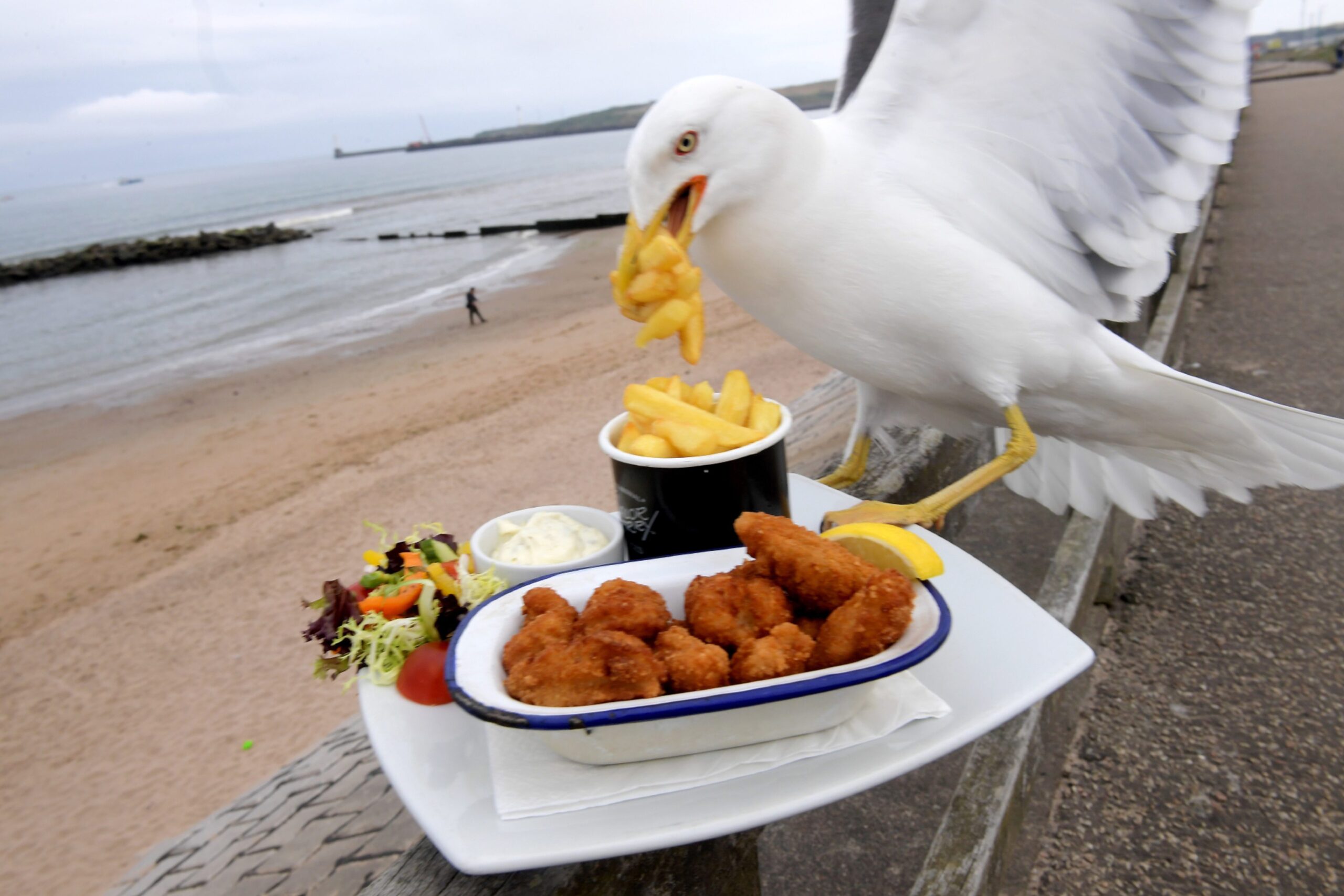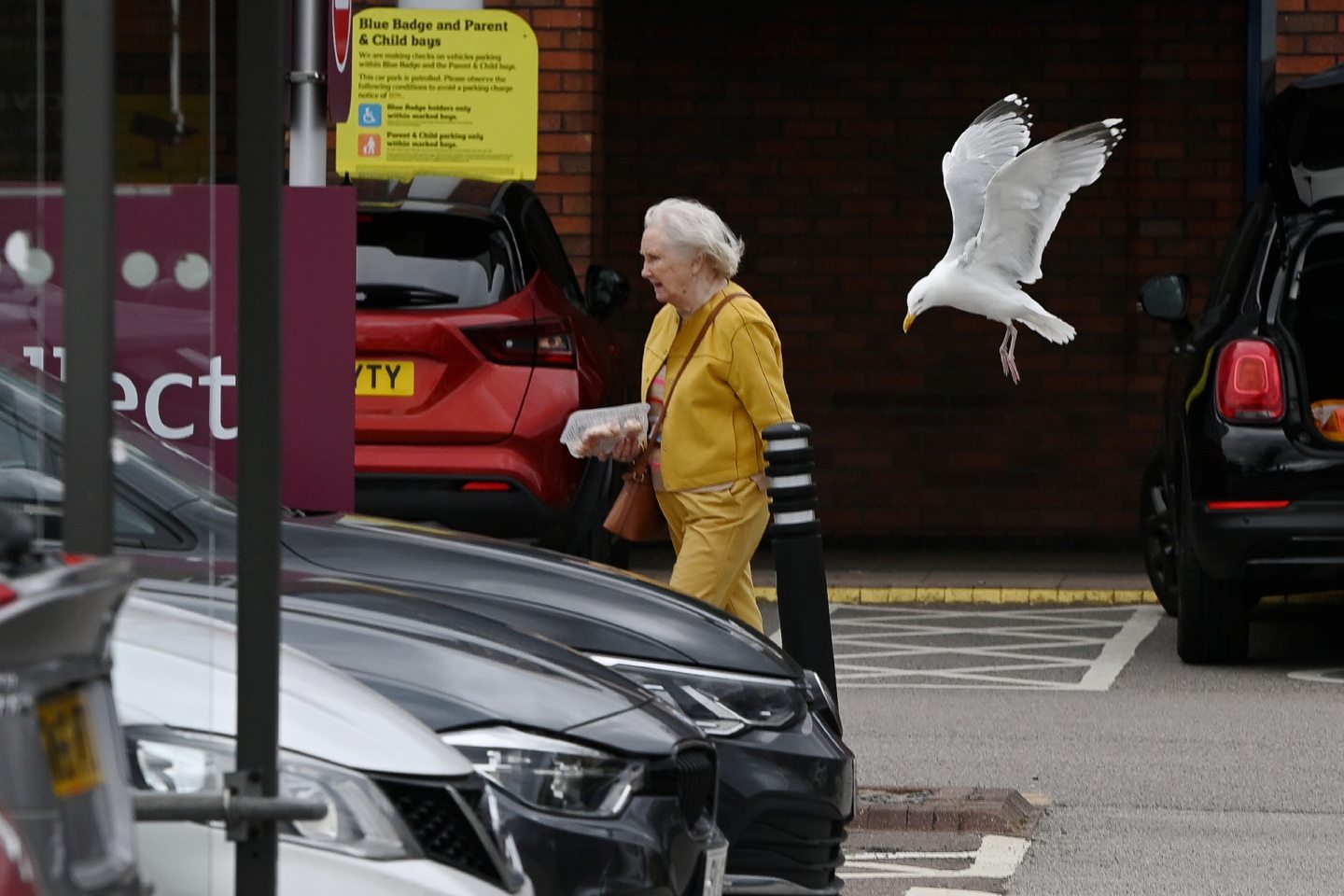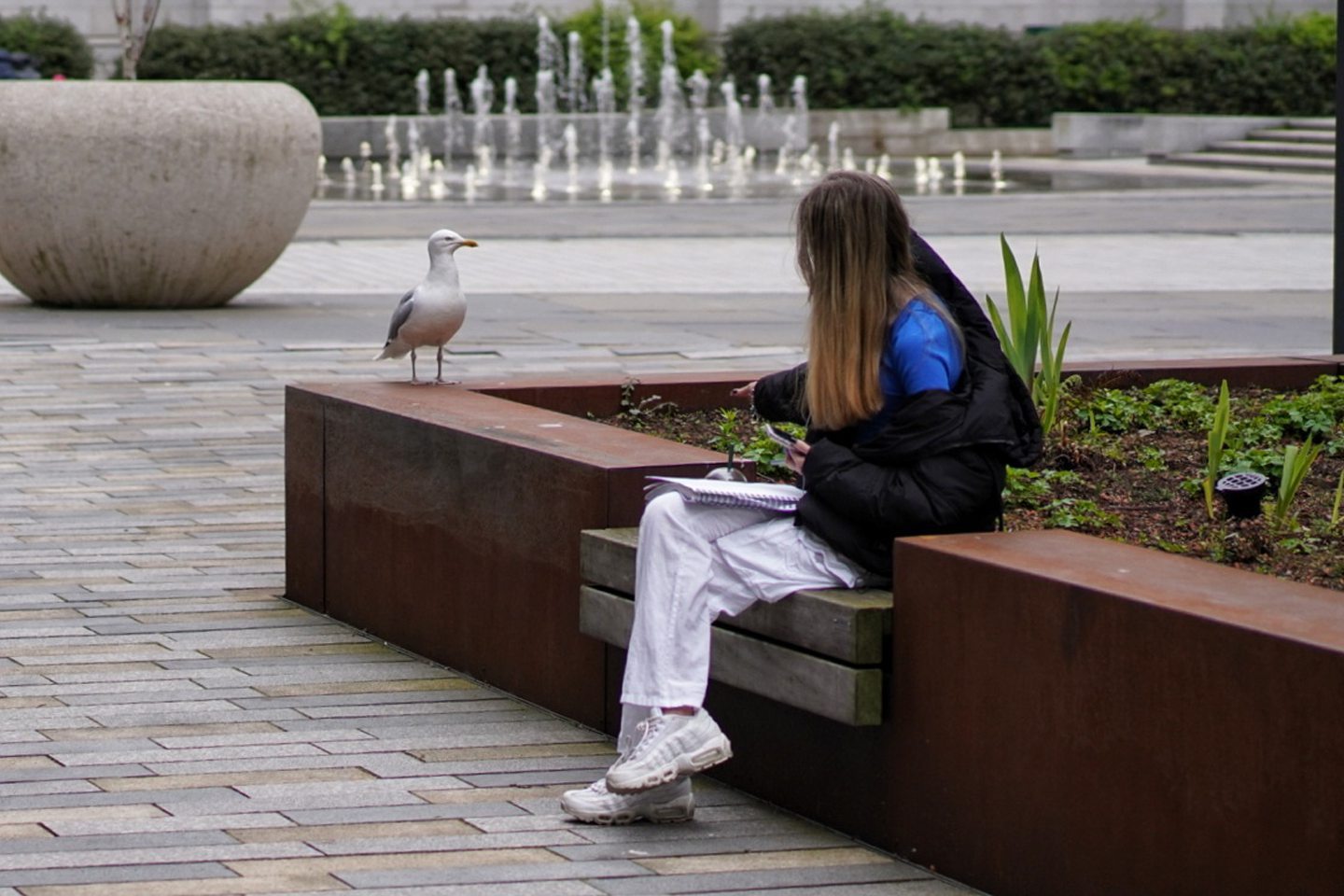A few weeks ago, I was attacked in broad daylight, outside my office.
For the first time in my life, I was mugged.
There I was, minding my own business, when – out of nowhere – my attacker swooped in and robbed me of my cheese twist.
The incident has left me traumatised, to say the least, and now everywhere I go, I feel constantly on high alert in what I used to consider a safe city.
I am, of course, talking about the terror I now feel for the urban gulls plaguing Aberdeen.
The swoosh of the wings as it flew in to perch on my shoulder before pecking the savoury pastry out of my hands is a sound I will never forget. And I am in no way exaggerating.
The people of the north-east are no strangers to these pesky birds; I have long heard people bemoan their existence. But the problem is, without a doubt, getting worse.
Since that awful day, I have been mindful about what I do with food out in the open, for fear of being struck again.
Many an afternoon, I have peered from the top floor windows at Marischal Square and witnessed the same attacker sitting perched on a lamppost, waiting to strike its next victim.
The city centre has always been a bit of a hotspot for gulls, along with the beach. I don’t know how the food vans at the seashore get any business at all, for fear of the circling North Sea vultures.
But, this year, I have noticed them venturing further into the city.
At the weekend, I took to the garden in the nice weather to do a bit of weeding. The neighbours had barbecues out, and the scent of burgers was circulating on our street.
The next thing I knew, a colony of gulls was soaring above us, squawking and screeching. I have lived on my street for 20 years, and this display, until now, has not been a regular occurrence.
In recent weeks, however, the feathered menaces have been raiding wheelie bins and strewing rubbish all over the pavements, showering our cars in their mess, and causing general havoc.
Two years of trouble for supermarket shoppers
I can’t even escape them when I go to do my weekly shop.
Two years ago, gulls started terrorising shoppers leaving Sainsbury’s in Berryden. The situation was so bad, the supermarket chain had to reimburse customers for goods the winged devils were stealing from trolleys in the car park.
Spikes were placed on and around the building to stop the gulls from landing but, two years on, they clearly still have a problem.
Last week, I watched as a poor woman was repeatedly dive-bombed during the short journey from the supermarket door to her car. She had decided to transport her chicken fillets without the safety of a bag, and spent the whole walk batting away the bird as it incessantly pecked at her and her packet of meat.
Every year, I am one of those people who look at the new baby gulls and say: “Aww, aren’t they cute?” If I spot one waddling around on the road, I’ll run to shoo it away before it’s hit by a car. But I do think it’s about time more is done to tackle their nuisance behaviour.
As a protected animal, it has never been easy to manage the gull population in towns and cities. But, this year, the new seabirds count census shows all five breeding species of gull continue to decline, with numbers in Scotland down by between 44% and 75%.
This means it is now harder than ever to obtain licences to try to control the birds, by either destroying nests or eggs of gulls, relocating the chicks or, as a last resort, carrying out lethal control.
We can (and should) do more
NatureScot says it’s about making sure the balance is right between conservation and protection of the birds, and public health and safety. But how severe must the issue become for it to warrant tackling?
Previously, we’ve reported in The P&J about how people required hospital treatment because they were attacked by a protective mother gull, and about whole streets in a small village left unable to receive their mail because posties refuse to step foot there for fear of bird attacks. Some are being kept awake all night long due to nesting birds near their homes. Yet, it feels impossible that anything will change.
There is clearly more we can and should do.
In Canada, people wouldn’t dare dream of leaving a bag of rubbish or food waste lying outside their house, in case of bear attacks. They grow up learning to exist alongside the grizzlies in the safest way possible, for both humans and the bears.
Now, I’m not suggesting we have killer seagulls on the loose, but small acts such as minding where we eat and what we do with our waste could really help.
I know I won’t be tucking into any cheese twists on any city centre streets anytime soon.
Rebecca Buchan is deputy head of news and sport for The Press and Journal and Evening Express




Conversation